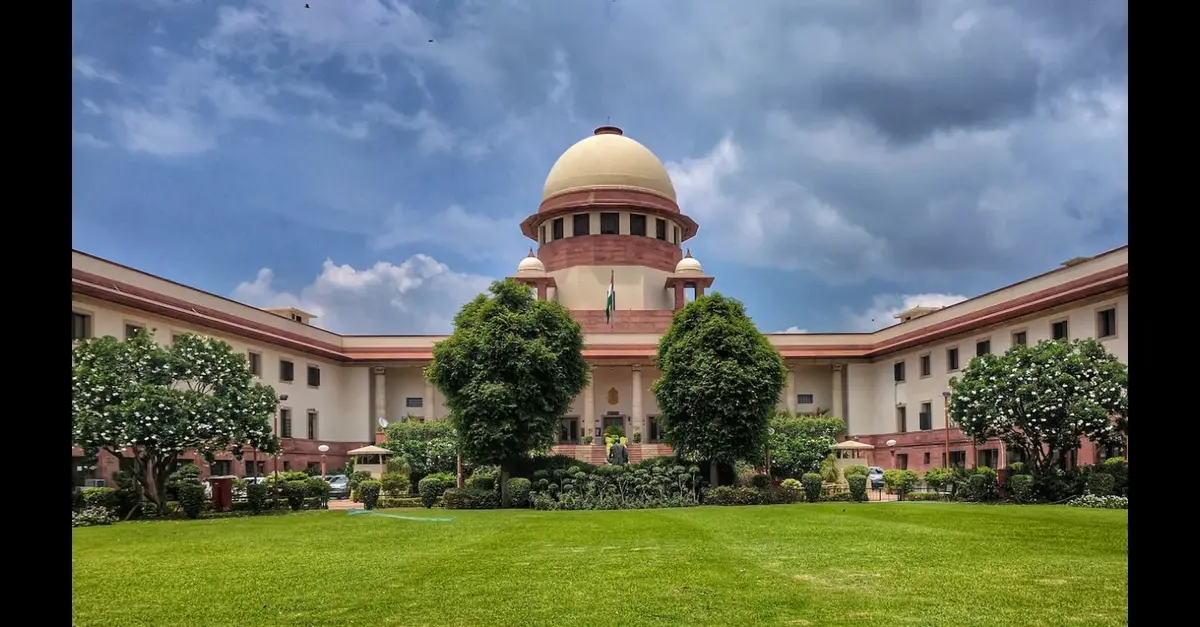Introduction
In a notable decision, the Supreme Court has put a stay on the operation of a judgment of High Court of Bombay wherein the court had acquitted all 12 convicts in the infamous 7/11 Mumbai train blasts that shook conscience and internal security of the country in 2006. Additionally, the court has thereby set this as a precedent for any pending trials under the Maharashtra Control of Organized Crime Act.
Background
On the 7th of November, 2006, First-class compartments of a Mumbai local train experienced seven simultaneous high-intensity bomb blasts killing 187 people and injuring 824 passengers. The blast was aimed at peak hours when the trains were used by executives, professionals, and salaried employees. The bombs were strategically planted to ensure synchronized detonation, which suggested that timer devices were used. Separate FIRs were filed in seven police stations, but they were later consolidated for investigation by the Maharashtra Anti-Terrorism Squad (‘ATS’). Thirteen accused, along with fifteen absconding accused and two deceased (both Pakistani nationals), were charged under multiple provisions of the Penal Code, 1860 (‘IPC’), the Unlawful Activities (Prevention) Act, 1967 (‘UAPA’), the Explosive Substances Act, 1908, the Explosives Act, 1884, the MCOCA, the Railways Act, 1989, and the Prevention of Damage to Public Property Act, 1984. The investigation revealed a deep-rooted conspiracy involving banned outfits, primarily, the Students Islamic Movement of India (‘SIMI’) and the Lashkar-e-Taiba (‘LeT’). The prosecution alleged that between 1999 and 2006, a network of conspirators planned and executed the attacks which included cross-border training in Pakistan, infiltration by Pakistani nationals via Nepal and Bangladesh border, local logistical support, assembling explosives in Mumbai and the coordinated bomb blasts to cause maximum damage to Mumbai, India’s financial capital and destabilize the social harmony. The special court convicted 12 out of the 13 accused. Five were sentenced to death and the other 7 were punished to imprisonment for life.
Later, on 21st 2025, the High Court of Bombay overturned this Judgment, acquitting all 12 accused, holding that the prosecution failed to establish their offence beyond reasonable doubt. The appellants raised several contentions questioning the legitimacy of the entire investigation and argued that the invocation of MCOCA was illegal as the pre-requirement of ‘continuing unlawful activity’ was not satisfied. The defense further raised doubts on confessional statements made under the MCOCA. It was contended that the accused were not informed of their right to legal counsel and no medical evaluations were done to rule out torture. The mandatory ‘cooling-off’ period was also either insufficient or ignored and there was absence of required certificates. Additionally, there were allegations of custodial torture, discrepancies in the testimonies and procedural infirmity in the test identification parades (‘TIPs’). The High court had acquitted these convicts citing the unreliable evidence and harsh police tactics, including torture to secure the confessions
The Maharashtra Government appealed against this decision before Supreme Court. Solicitor General Tushar Mehta, appearing for the state, told the bench of CJI B R Gavai, Justices K Vinod Chandran and N V Anjaria that the matter is of utmost urgency. “It is a serious issue and requires urgent hearing,” Mehta said, adding that the state had already filed the appeal against the high court’s judgment, which overturned the convictions, including death sentences for five of the accused. Mr. Mehta also flagged the possibility that such a precedent would undermine ongoing and future acts of terrorism, particularly under strict legal frameworks such as the MCOCA. The division bench consisting of justices M. M. Sundresh and N. K. Singh agreed on the contentions raised by the Solicitor General, ordering the High Court judgment to be stayed.
Key Points
-
- Preventing the judgment from being treated as a precedent in matters that are presently pending and matters which are to arise under the MCOCA, the Supreme Court has specifically stayed the High Court judgment only to this extent. It is noteworthy that the Supreme Court has neither raised doubt regarding the factual findings of the High Court, nor has it ordered for the persons acquitted to be arrested and taken back into custody.
- It has been distinctly directed that the instant judicial intervention would not cause the released convicts to be re-arrested. However, the state awaits the final decision of the apex court with regards to this. The
Recent Developments
The Supreme Court upholds its stance that there is no question of bringing back the released respondents to the prison. It also specifically noted that the impugned judgment shall not be treated as a precedent. To that extent, there is a stay of the impugned judgment. The final decision of the apex court on the matter is anticipated in due course.
Conclusion
The exposes the deep flaws within India’s anti-terror investigation framework, from questionable police conduct to the protection of fundamental rights of the accused, especially in matters related to terrorism. As the case heads for a fuller review, it stands as a major test for India’s justice system. The question as to whether it is capable of serving the victims of acts of terrorism all the while safeguarding due process and fairness for all remains.
“PRIME LEGAL is a full-service law firm that has won a National Award and has more than 20 years of experience in an array of sectors and practice areas. Prime legal falls into the category of best law firm, best lawyer, best family lawyer, best divorce lawyer, best divorce law firm, best criminal lawyer, best criminal law firm, best consumer lawyer, best civil lawyer.”
WRITTEN BY AYANA THERESA XAVIER


